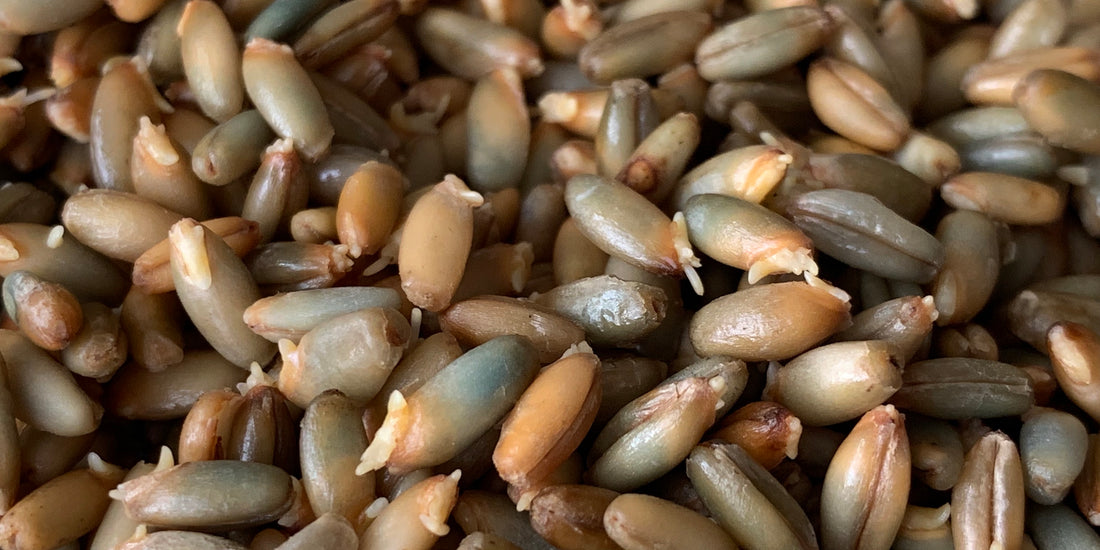
Rye bread with sprouted rye kernels
Share
Recipe by Mikael Krogdal
Mikael is a die-hard bread enthusiast with extensive experience in all variations of sourdough bread. He develops recipes and works with the taste, the crust and the crumb, the ingredients and shares his knowledge at his own baking courses, on his blog mikaelsbroed.dk and on his Instagram profile . In this recipe, Mikael shares a fantastic baking tip for rye bread - How to sprout whole rye kernels and add them to the Rye cup bread. You can get the whole rye kernels in our webshop.

Kernels can be a delicious addition, they give the bread texture and weight - it gives something to bite into. If you sprout the kernels, you get an extra dimension in the taste and an easier-to-digest whole grain. The sprouted kernels give a light taste of malt when they are baked, and the closer to the crust the stronger the malt taste. After I started sprouting rye kernels, I no longer use broken and cut kernels. There is a bit of extra work involved in sprouting the seeds, but mostly it comes down to planning and it's worth the work.
Course of action:
Take the amount of rye kernels you need, let them soak in a bowl or other container for 2-3 hours or overnight. The water is then poured off, and the kernels are put back in the bowl with a cloth over it. Every morning and evening the kernels are rinsed and drained, and if you have time during the day, you can turn the kernels by hand so that they are oxygenated and so that the top layer does not dry out. Rye kernels are hardy, so if they miss a single rinse they usually make it anyway, but we are interested in all kernels sprouting roughly at the same time and not getting sour, so it is worth giving them the extra attention.
Depending on the condition of the kernels and room temperature, they are germinated in one to three days. When the kernels have a small sprout, they are ready for use, they are allowed to sprout longer, they develop more sugars and thus become sweeter, the texture becomes softer. My kernels are usually ready after approx. 36 hours, I prefer those with a very small sprout. If the kernels are fully sprouted before you are going to bake, pack them tightly in a plastic bag and put them in the fridge, where they can last for a few days. If you need to store them longer, you can put them in the freezer. If you use the freezer, it also gives you the opportunity to germinate larger quantities of kernels and take them up as they are needed.
PHOTO: 4 photos taken 12 hours apart, showing rye kernels sprouting over two days.
Most cereals can be sprouted, apart from spelled and barley which have often suffered too much damage when they are hulled, and the kernels can be used in both wheat and rye bread. Buckwheat can be sprouted, and is really delicious in a wheat bread, but buckwheat only needs to be soaked for twenty minutes before it is allowed to sprout.
Sprouted rye and RyeCup
It is not difficult to use sprouted kernels in your rye bread. Take a RyeCup of whole dry rye kernels and let them germinate according to the procedure above. When the kernels have sprouted, follow the procedure on the cup, but leave out half a cup of water, as the kernels have already absorbed water.
If you have sprouted a large amount of kernels, measure out two RyeCups of sprouted rye, as they approximately double in volume, remember to leave out half a RyeCup of water here as well.


